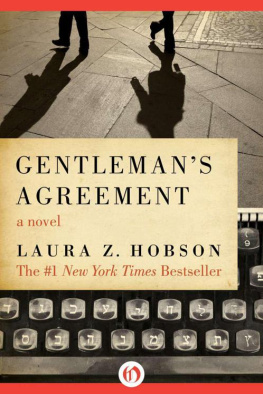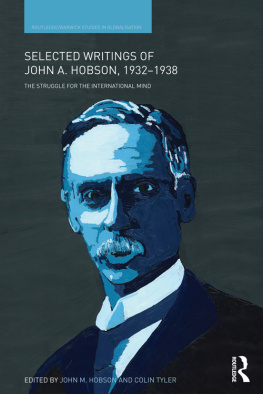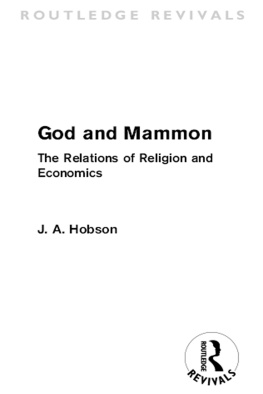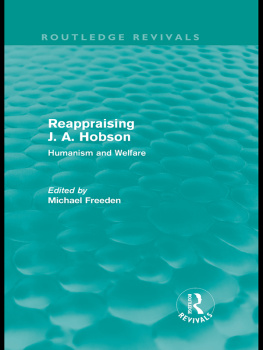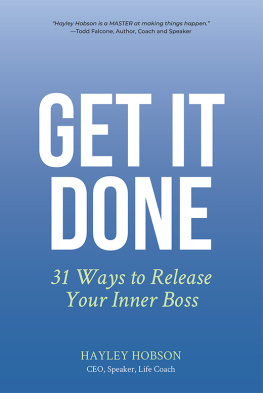Laura Z. Hobson - Gentlemans Agreement
Here you can read online Laura Z. Hobson - Gentlemans Agreement full text of the book (entire story) in english for free. Download pdf and epub, get meaning, cover and reviews about this ebook. year: 2011, publisher: Open Road, genre: Art. Description of the work, (preface) as well as reviews are available. Best literature library LitArk.com created for fans of good reading and offers a wide selection of genres:
Romance novel
Science fiction
Adventure
Detective
Science
History
Home and family
Prose
Art
Politics
Computer
Non-fiction
Religion
Business
Children
Humor
Choose a favorite category and find really read worthwhile books. Enjoy immersion in the world of imagination, feel the emotions of the characters or learn something new for yourself, make an fascinating discovery.
- Book:Gentlemans Agreement
- Author:
- Publisher:Open Road
- Genre:
- Year:2011
- Rating:5 / 5
- Favourites:Add to favourites
- Your mark:
- 100
- 1
- 2
- 3
- 4
- 5
Gentlemans Agreement: summary, description and annotation
We offer to read an annotation, description, summary or preface (depends on what the author of the book "Gentlemans Agreement" wrote himself). If you haven't found the necessary information about the book — write in the comments, we will try to find it.
Gentlemans Agreement — read online for free the complete book (whole text) full work
Below is the text of the book, divided by pages. System saving the place of the last page read, allows you to conveniently read the book "Gentlemans Agreement" online for free, without having to search again every time where you left off. Put a bookmark, and you can go to the page where you finished reading at any time.
Font size:
Interval:
Bookmark:

For Mike and Chris
ABRUPT AS ANGER, depression plunged through him. It was one hell of an assignment.
Youll find some angle, John Minify said.
Itll need an angle all right. He squinted his eyes and looked off past Minifys shoulder as if he were taking the measure of some palpable thing there.
Take your time on it. Minify spoke without urgency. I think you might turn out a great job.
Philip Green nodded, not in agreement with the comfortable words, but in affirmation of his own estimate of the job ahead. It would be flabby, lifeless, unless he found some special approach to it. Instinct, experience, past failures as well as past successes, all helped him now in his quick appraisal.
If you want, Minify went on, well borrow the clips on it from some newspaper morgue. Thered be plenty of names of agencies and committees to start on.
Committees. The certainty of future boredom, of wasted listening, laced his depression with resentment. Minify surely could have found a more manageable subject for his first job as a staff writer. The clips would help, he said. Thanks. He half closed his eyes, drew his lower lip in taut over his teeth as if he were shaving his chin, and sat thinking. Ill start researching it, anyway. There must be plenty of dope around.
I wouldnt force this series on you, Minify said. Knock it around awhile and well talk again.
O.K. Phil stood up, without finality. He was in his middle thirties, tall, too thin, with an intelligent, decent face. Eyes and hair were dark; he had begun to go gray. There was a quiet about him, an absence of aggression, yet there was no diffidence in his voice or manner.
You certainly didnt hand me a pushover for a starter, he said at last. It was matter-of-fact, bare of complaint or chiding. It would take more than a disappointing assignment to topple his admiration for Minify or lessen his confidence in him as an editor. Would anybody read five articles about antisemitism? He saw Minify nod. Three million readers?
Minify didnt answer. He leaned forward toward his desk, propped his chin on the knuckles of his closed hand. Then he swiveled the hand about so that the thumb stood up vertically across the corner of his mouth. He seemed all at once absorbed in another idea. His thumb tapped lightly against his lips, in a one-two-three, one-two-three rhythm. Phil smiled. Minify was considering three million readers out there somewhere across all the towns and cities of the land.
No, Minify said at last. You couldnt print anything in Gods world all three million would read. But some of them will.
Sure. And will it do any good?
Minify tipped his head back so he could look directly at Phil. Did your Okie pieces or your mine pieces do any good?
Phil smiled. Thats nailing me. Fathead question.
It didnt take that Roper survey to tell me its getting worse. You feel it. It gets you either mad or uneasy. I mean me.
Or baffled.
So you can bet its hitting plenty of people that same way. If you find some strong way to write it, itll get read.
If.
Minify offered his half-empty pack of cigarettes as if he counted on a refusal, the way you used to during the cigarette shortage. He lit one himself and then sat examining his lighter. He snapped the flame on and off several times, watching it flare up and snuff out. He gave it a last decisive click and stood up.
Getting to know people here?
Not so many. Im always slow about that. Its fine, though. My kid likes it, and my mother. She always wanted to live in New York.
Have you any relatives here? Or are they all in California, too?
Phil shook his head to both questions. Minifys concern on this personal level pleased him. One of my sisters is out there, and the other lives in Detroit. Grosse Pointe, rather.
Ive been meaning to introduce you, Minify began vaguely. Then his manner lost its air of improvising. How about tonight at my place? Were having some people over. Couple of girls and people.
Thanks. Id like to.
The editor told him where, and they shook hands with a touch of formality, as if each suddenly remembered he didnt know the other well. With an inexplicable embarrassment, Phil took up his coat and hat and left quickly. He went down the long corridor, past open-doored offices in which people were talking or laughing. The shyness of the outsider came over him. Though the line By Schuyler Green was known to every one of them, he himself was a stranger. Working at home was the setup hed asked for, but it would be wise, now that he was on the staff, to come in every day until he got to know some of these editors and writers. At once the idea disturbed him. On an assignment, he was never shy about meeting and interviewing people, but to make new social contacts was another thing. His mind ran from this self-recognition, with a hurried promise to do something about the office soon.
In the reception room, he stopped to put on his overcoat. The receptionist gave him a neat, exact smile, a precise replica of the one she had bestowed each of the other three times he had come in or gone out through the double glass doors that announced Smiths Weekly Magazine. The scene was a replica of the other times, too; in the dark-red armchairs the usual assortment of people waited the signal to go in to their appointments. Could any of these unknowns be some writer whose name and work were perfectly familiar? The notion made him look around once more. With the exception of best-selling authors and syndicated columnists, whose faces looked out of endless book advertisements, reviews, and columns, there was an anonymity about most writers. Perhaps some of these waiting people in the reception room knew his name and work and would yet look blankly at his strangers face. In his anonymity, he smiled comfortably, and went out to the elevators.
In the street, he turned toward Fifth Avenue. In the two weeks since hed become a resident of New York, he had passed the stage where he had to watch two successive street signs to see whether he was headed uptown or down. At the corner of Fifty-seventh and Fifth, he turned south and began to walk rapidly in the thin December sunlight. Soon he was striding along as if he were hurrying to a specific place at a specific time. Actually he was walking only so that he could think more rapidly about the new assignment. Already the search for the angle completely occupied him. He might take one Jewish family in some particularly antisemitic section and trace its life in the past few years. No, a long string of articles on that would bore readers to death. His mind pushed the notion aside, darted in new directions, hunting possibilities, exploring, rejecting. Again he was depressed. For days hed be in for the old familiar sequencehope as an idea flared bright, then unease and self-mistrust as closer examination snuffed it out. Like Minifys lighter.
It was the rhythm of all living, apparently, and for most people. Happiness, and then pain. Perhaps then happiness again, but now, with it, the awareness of its own mortality. He had made an honest enough search for happinessin the last year or two, at any rate. All he had found was transience.
The sting of cold air in his throat told him he had sighed deeply. Cut the philosophy, he told himself testily. He walked on now, thinking of nothing, merely watching, seeing, noting. At Thirty-fifth Street, he turned left, to the remodeled brownstone house just east of Park where he lived. In the vestibule he took out his keys, tapped the bell, and let himself in without waiting. Above, a door opened. His mothers voice said, That you, Tom? and he said, No, its me. He went up the carpeted steps slowly, suddenly thinking about his mother. Her voice sounded older than her sixty-eight years; all the chivying details of transcontinental moving had been hard on her.
Font size:
Interval:
Bookmark:
Similar books «Gentlemans Agreement»
Look at similar books to Gentlemans Agreement. We have selected literature similar in name and meaning in the hope of providing readers with more options to find new, interesting, not yet read works.
Discussion, reviews of the book Gentlemans Agreement and just readers' own opinions. Leave your comments, write what you think about the work, its meaning or the main characters. Specify what exactly you liked and what you didn't like, and why you think so.

